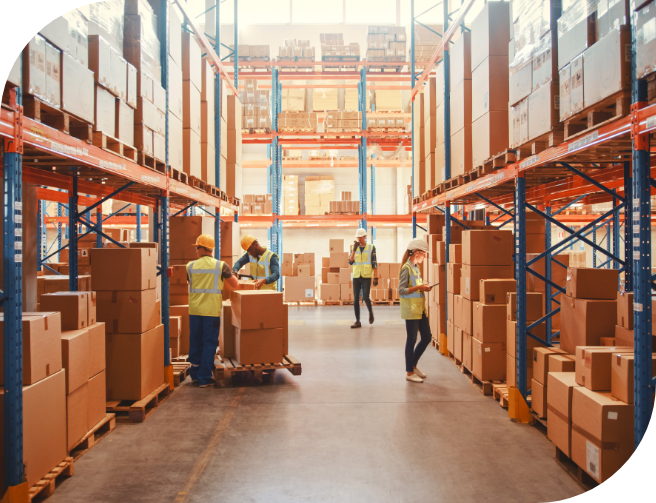Start moving in the
right direction.
Speak to us today to see how we can improve your business logistics, freight and customs related issues.
Download the How to Import fact sheet as a PDF
If you are bringing goods into Australia they must be cleared by the Australian Customs and Border Protection Services and may be subject to clearance fees, customs duty, Goods and Services Tax (GST) and other taxes.
You may bring goods with you when travelling from overseas or you may have them sent to you by air cargo, sea cargo or international post. These are all classified as imports.
Goods with a value of less than $1000 are not subject to customs duty or GST, unless they are alcohol or tobacco products. The supplier sending these goods to you must attach a customs declaration of the package to describe the contents and their value and these are generally delivered through the Australian postal system.
Goods valued at over $1000 will need to be assessed for customs duty and GST. It’s important that you take the time to describe and find the correct tariff classification for the goods you are importing.
Working out the correct tariff for your products can be very complicated – importing from specific countries with free trade agreements, or preferential duty rate agreements, may reduce your tariff rate.
Duty is calculated based on the tariff classification for the goods and their customs value, which is usually the price you paid converted to Australian dollars.
GST is calculated on the Value of Taxable Importation (VoTi), which takes into account the customs value, any duty paid and the freight costs to bring the goods to Australia.
You can view the current Working Tariff information at the Australian Customs website.
First time importers can apply for tariff advice through Customs Australia. You can download an application form at the Australian Customs website.
For all imports into Australia you will be required to lodge an import declaration. Imports under $1000 are lodged as SACs (Self Assessed Clearance) declarations – these do not incur import duty/GST or ACS (data processing) charges, with the exclusion of alcohol and tobacco.
Import Declarations are used by the Australia Customs Service to assess the goods for customs duty, GST and other taxes and charges, and to determine whether they require permits or other approvals, especially if they are classified as dangerous goods.
The minimum documentation required is an invoice, bill of lading/airway bill and any other papers such as AQIS Packing Declaration (for sea freight only) packing list, insurance documents, etc. relating to the shipment. Download a Packing Declaration template here.
You must attach these documents to your Import Declaration, which must be lodged by the importer receiving the goods in Australia, or their chosen agent. If you choose to lodge your Import Declaration yourself you will be required to provide 100 points of identification.
More information on Import Declarations from the Australian Customs website.
Your Import Declaration should be lodged before the goods land in Australia. You will need to provide information on the port where the goods were loaded, which port they will arrive at, the first arrival date and vessel or airline information depending on how they are being shipped.
Generally individuals and companies will not need to hold an import licence, but you may need to obtain a permit depending on the nature of the goods you are importing.
Some goods are not allowed to be imported to Australia under any circumstances, and others may need written permission in the form of a permit.
Permits must be obtained BEFORE the goods are brought into the country. Restricted goods include items such as medicines, weapons, and dangerous goods. You can view a list of goods requiring permits at the Australian Customs website.
Goods such as food items, plant, wood, animals and animal products will require quarantine clearance through the Department of Agriculture.
The Australian Customs and Border Protection Service and the Department of Agriculture provide accreditation and licenses to private Customs Brokers so that they may assist businesses in navigating the complicated processes of importing goods into Australia.
Clarke Global Logistics is a licensed Customs Broker and has accreditation through the Department of Agriculture to advise on and oversee the process.
For assistance and advice please contact us.


Established in 1917, Clarke Global Logistics is a reputable Australian Customs Broker and Freight Forwarder; offering a totally integrated trade service both locally and globally.

Speak to us today to see how we can improve your business logistics, freight and customs related issues.